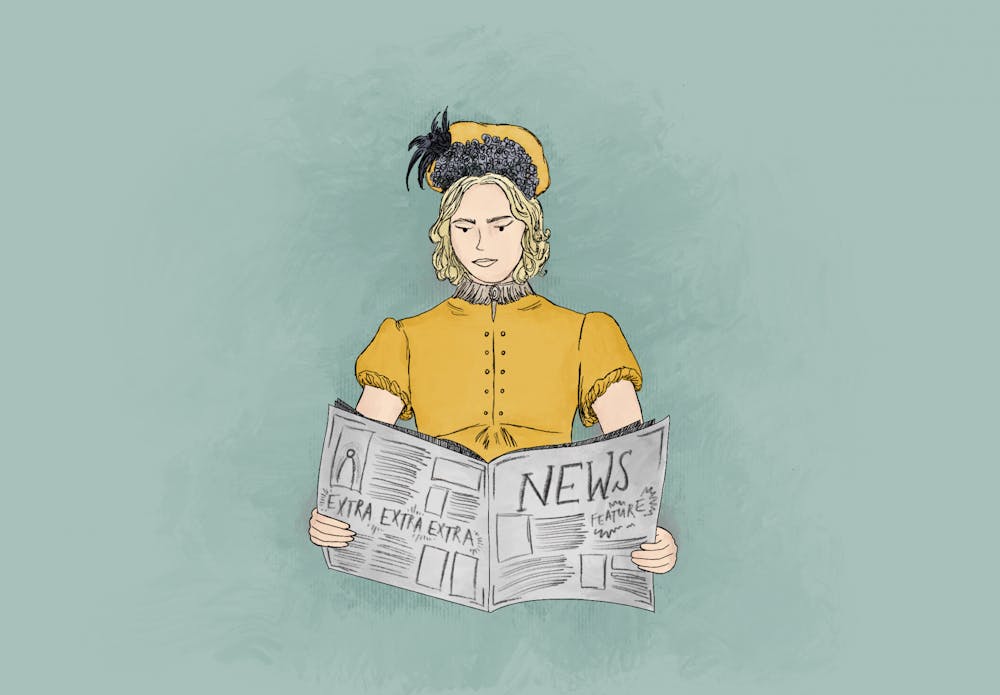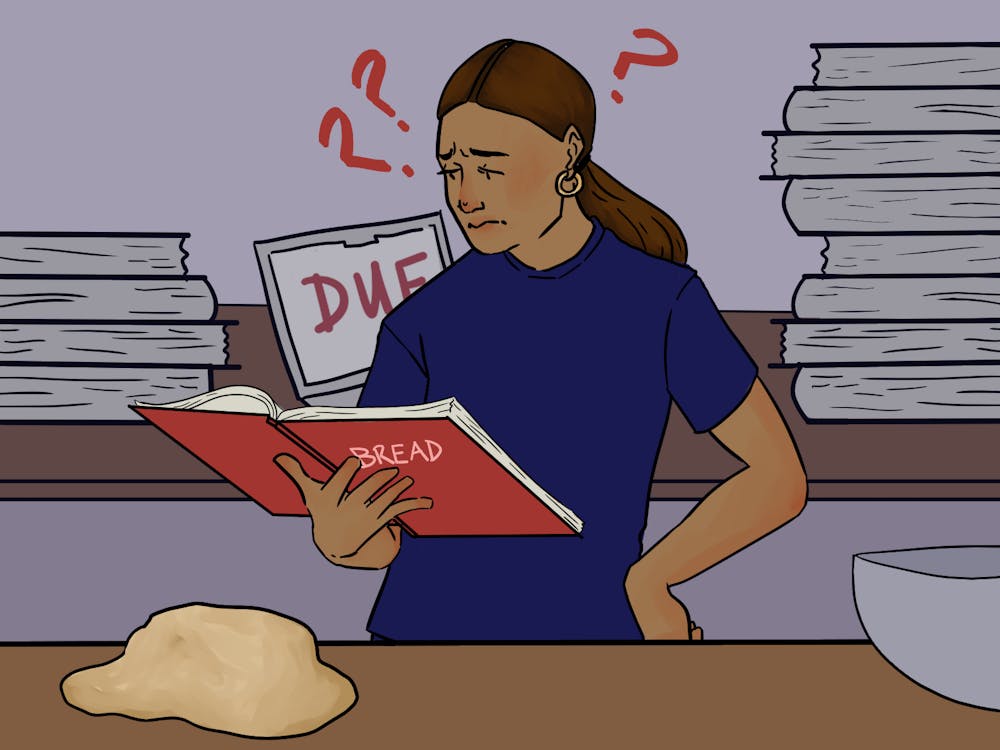An avid Jane Austen fan since I could self-profess it, I was excited to see an Austen course offered in the English Department this spring. I immediately enrolled when class registration began, eager to tackle these beloved novels — “Mansfield Park,” “Sense and Sensibility,” “Persuasion” and my personal favorite book, “Emma.” My professor said no “Pride and Prejudice” or “Northanger Abbey.” I was okay with this, as I possessed enough of those former traits and was quite well-versed in the latter — “Northanger Abbey” being a tale of a young woman declaring herself victim to creatures that don’t actually exist.
Starting the course with “Emma,” I made many keen observations about its titular heroine, Emma Woodhouse. Emma is “a mind delighted with its own ideas.” At the novel’s start, she is simply selfish. Emma perceives the elations of her dearest friends to be direct attacks on herself. Emma schemes and plots — she expresses ideas distasteful to our contemporary tastes, often speaking in places she was not invoked to do so. I have no particular qualms with this behavior. Indeed, free speech should give a platform to the voices of the most marginalized. And amongst the company of Harriet Smith, a poor, uneducated and abandoned girl, and Mrs. Weston, friend yet longtime servant to Emma, Emma very much should be the voice to be heard first and foremost, as an affluent, privileged character.
To my great chagrin, however, I discovered this class would not manifest my joys in ways exactly conducive to my expectations. During the first class, I raised my hand, but my professor did not see it. Thus, I was forced to self-censor and stay quiet. During the second class, my professor did see my hand, but immediately called on someone else, who spoke on another issue not of my interest or concern. I was shocked to be self-censored again. During the third class, I expressed the belief that Emma was correct to meddle in others’ romantic lives. Yet again, I was self-censored, as another student proceeded to disagree with me.
This self-censorship was so horrid — and yes, I insist it is horrid, truly horrid — that I knew I had to speak out. Thus, I took to this very paper, a free resource to all students that publishes their beliefs in guest columns if they’d like to see their voice easily presented to others. But make no mistake — editors did their best to self-censor my opinion. They asked me to add hard evidence. They asked me to clarify vague points in my argument. They even asked me to delete all the Oxford commas from my article. I’d never be so self-censored in my life — or so I thought.
After about a week, my article was finally published. I was never as self-censored as the day every last person at the University had to hear my voice. It hurt — it really did. People told me I was wrong about Emma. People presented hard evidence to counter my article. Worst of all, people told me to shut up. I know every opinion columnist writing for this paper gets told to shut up by random people on Facebook, but for me, it was different. For me — even though I easily published my opinion in a school newspaper run tirelessly by students for students — it was self-censorship.
To all my readers, I hope you never have to face the horrors I’ve gone through. This experience has only rooted me further in my beliefs on Austen. I think with greater firmness now that Mr. Wickham was correct to elope with Lydia Bennet in “Pride and Prejudice.” I take great inspiration from Sir Walter Elliot’s reading of the Baronetage, a book that makes him feel powerful even though his title really means nothing, in “Persuasion.” And I relate entirely to “Emma” — at least its beginning, as its ending, in which Emma begins to learn her wrongs, is less to my tastes. No one shall ever self-censor me again, for I am unyielding in my cluelessness.
Bryce Wyles is an Opinion Editor for The Cavalier Daily. He can be reached at opinion@cavalierdaily.com.
The opinions expressed in this column are not necessarily those of The Cavalier Daily. Columns represent the views of the authors alone.







